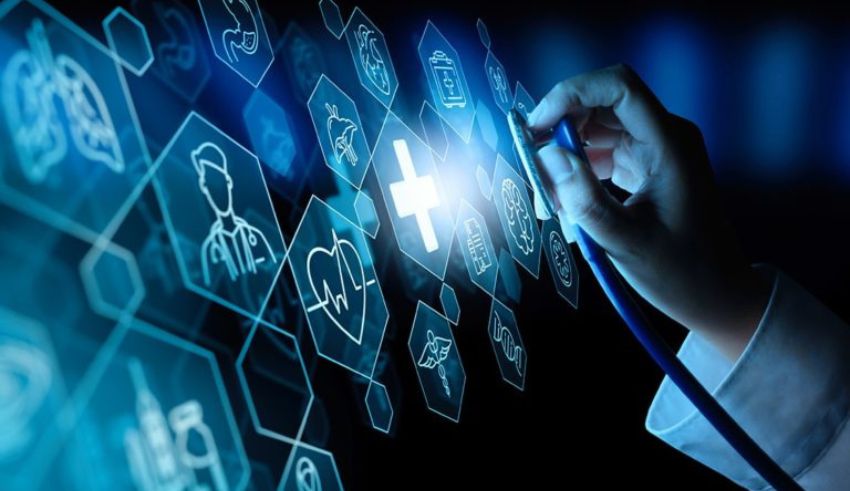

(C) Arizona College of Nursing
The field of medicine is always changing, and excitingly fast new diagnostic technologies are developing. Early detection, more customized treatment strategies, and finally a healthier future depend on these developments transforming our approach to healthcare. Let’s explore four revolutionary medical tests ready to change the field of medicine and health:
Conventional cancer diagnosis might call for intrusive treatments including biopsies. But a revolutionary substitute are liquid biopsies. This non-invasive test searches a patient’s blood for either broken tumor DNA or circulating tumor cells (CTCs). Early identification of these markers can result in earlier intervention and maybe enhance the results of treatment.
The Effect on Cancer Treatment
Early detection is simply one benefit of liquid biopsies; they also offer important genetic mutation information about the disease driving a patient. More focused treatments, tracking therapy response, and early identification of minimum residual disease or recurrence made possible by this enable more conventional techniques to be replaced.
More general Uses
Beyond cancer, liquid biopsies could be employed in monitoring various ailments including prenatal genetic abnormalities and cardiovascular diseases, therefore this method is a flexible instrument in contemporary medicine.
Overall health depends much on the complex ecology of billions of microorganisms that is the human gut microbiome. Microbiome study investigates the makeup of this varied community and offers understanding of possible connections between gut health and certain disorders. This knowledge can open the path for tailored therapeutic treatments aiming at the microbiota in order to produce better results on health.
Health Disorders Connected to the Microbiota
Studies of the gut microbiome have connected abnormalities to a variety of ailments, including obesity, diabetes, inflammatory bowel disease, and even mental health illnesses like sadness and anxiety. Knowing these connections can result in fresh techniques of treatment.
Personalized Diet and Probiotics
Offering a fresh perspective on preventative healthcare and chronic illness management, microbiome analysis can direct individualized dietary advice and the use of probiotics to reestablish a healthy gut balance.
Polygenic risk scores examine variances over a person’s whole genome. This data can help one understand their likelihood of acquiring specific ailments including diabetes, heart disease, even some malignancies. Early knowledge of these hazards makes preventative actions possible as well as customized monitoring plans.
Personalized preventive care
A knowledge of one’s genetic risk can result in customized lifestyle modifications, more monitoring, and preventative therapies. People who have a high genetic risk for heart disease, for example, may follow stricter diets and exercise regimes, while those at cancer risk may have more frequent tests.
Ethical Concerns and Availability
Although the possible advantages are really great, genetic privacy and the possibility of genetic discrimination raise ethical questions. As polygenic risk scores spread more widely, ensuring fair access to these tests and safeguarding patient data becomes absolutely vital.
The medical industry is fast being changed by artificial intelligence (AI). Development of AI-powered image analysis tools aims to examine medical scans including X-rays, MRIs, and CT scans. These instruments can help doctors spot anomalies and provide more accurate diagnosis, therefore improving the treatment choices.
Strengthening human expertise
By rapidly and precisely processing enormous volumes of data, artificial intelligence systems draw attention to areas of concern that human eyes would miss. By means of this cooperation between artificial intelligence and medical experts, diagnosis accuracy and efficiency can improve.
Future Enhancements
Predictive modeling, in which artificial intelligence not only detects present problems but also forecasts future health hazards depending on imaging data, could result as AI technology develops. Preventive healthcare may be transformed by this proactive strategy.
These are only a handful of the remarkable developments in the field of medical testing occurring worldwide. These technologies have great power to revolutionize healthcare as they keep developing and are more accessible. This will result in tailored medication, earlier interventions, and better general health outcomes for all.
Putting Change Into Use
Including these modern technology into healthcare systems calls for cooperation among patients, legislators, doctors, and researchers. Maximizing the advantages of these developments will depend on public awareness campaigns, legal frameworks, and training for public servants.
A New Medical Era
The junction of medicine and technology marks a new age in which early identification, individualized treatment programs, and preventative care rule. For millions of individuals all around, these developments promise not only to prolong life but also to improve quality of living. As we welcome these developments, the direction of healthcare seems to be better than ever.
NextRise 2025-the biggest startup and tech event in Asia-is ready to take place in Seoul on June 26-27 at COEX,…
On this reunion occasion marking 20 years after their debut, the anticipation of the fans seems to be reaching greater…
South Korean boy band RIIZE is returning to Singapore on January 24, 2026 as part of their “RIIZING LOUD” Asia…
Experience Japan’s longest running all-night rock festival, RISING SUN ROCK FESTIVAL 2025 in EZO, with incredible acts, a wealth of…
United States Immigration and Customs Enforcement conducted audits of three Denver cleaning companies, leading to more than $8 million in…
Cricket fans, rejoice! The Olympic Council of Asia (OCA) has confirmed that cricket will be part of the 2026 Asian…
This website uses cookies.
Read More